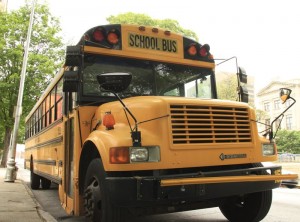
JJIE stock photo | Clay Duda, Staff
A piece of Texas legislation that would provide educators with detailed information about a student’s criminal history is poised to become law. If passed the measure would provide teachers and school officials access to juvenile records that have traditionally been confidential in most states, according to an Associated Press story.
Educators and juvenile advocates were at odds about the effectiveness of the new measure. Educators said teacher safety was paramount, but advocates feared revealing students' criminal information would undermine the work of the juvenile corrections system -– a framework that aims to allow youth who’s decision-making skills aren’t fully developed to move beyond early mistakes in life, according to the AP.
While current Texas laws allow teachers to be informed verbally about a student’s criminal past, the new legislation would require law enforcement to relinquish “all pertinent details” about a young offender’s history to the school superintendent. The superintendent would then be responsible for notifying the teachers.
The bill made it through the state Legislature with little public attention last month, but a spokeswoman for Gov. Rick Perry told the AP the governor was “thoughtfully” considering the legislation before deciding whether to sign it.
According to the report, Texas already provides more background information on a student’s criminal past than most state’s laws permit.

Clay, the verbal information about student’s criminal records is not good and will not be remembered for long time. Some Texas public records organization manages criminal records for this. These records can be access by authorized teachers or members at any time from home as well.
I support principals and other school leaders receiving this information; but, how they use it to transition students back into their home school setting is where the rub comes. Often times, teachers and other school staff have access to the information, but may want to use it to exclude students or deny them access to a quality education. The process of transitioning students or sharing their crimminal information must be done with sensitivity and support.